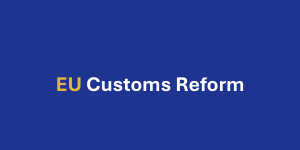Trade disputes are increasingly shaping global commerce. While their impact can’t always be avoided, businesses can take proactive steps to limit disruption, protect supply chains and remain compliant. Below, we outline practical customs strategies to help you stay ahead—no matter how the trade winds shift.
1. Reassess Your Product Classification
Trade disputes often target specific product categories with additional tariffs or restrictions. The way your goods are classified under the Harmonised System (HS) codes can determine whether they’re affected—or not.
- Ensure consistent and accurate classification across your product portfolio.
- Request Binding Tariff Information (BTI) for legal certainty across the EU.
- Monitor changes in classification rules and update records accordingly.
Correct classification can be the difference between exposure to new duties and exemption. It’s a strategic lever that deserves ongoing attention.
2. Review Non-Preferential Origin
In dispute contexts, non-preferential origin—the “economic nationality” of goods—often determines whether additional duties, anti-dumping or countervailing measures apply.
- Map your supply chain to verify origin under EU rules.
- Document production steps and origin documentation thoroughly.
- Prepare for increased scrutiny and origin audits.
Origin compliance is becoming a focal point for enforcement. Solid documentation is your best defence.
3. Diversify and Strengthen Your Supply Chain
Diversification is a key response to trade volatility. The EU encourages businesses to reduce dependency on single sources and regions.
- Identify alternative suppliers within and outside the EU.
- Leverage Free Trade Agreements to access new markets.
- Build contingency plans for critical inputs.
A resilient supply chain is not just a buffer—it’s a competitive advantage.
4. Stay Informed on Trade Policy Developments
Trade measures can shift quickly. Staying informed helps you anticipate and adapt.
- Follow updates from the European Commission and Customs Authorities of the EU member-states.
- Monitor sectors vulnerable to disputes.
- Use trade intelligence tools or partner with customs experts for timely alerts.
Knowledge is power—especially when policy changes are fast-moving.
5. Prepare for Enhanced Enforcement
Periods of trade tension often bring stricter enforcement, from anti-circumvention investigations to origin audits.
- Train staff on customs compliance and documentation.
- Review internal procedures and record-keeping systems.
- Set up workflows to respond quickly to new requirements.
Being prepared means being agile—and staying compliant under pressure.
Final Thoughts
Trade disputes are complex, but their impact can be managed. Focus on:
- Accurate classification and origin determination
- Supply chain resilience
- Staying informed and prepared
At Veninga Customs, we combine legal insight with operational pragmatism. We help businesses navigate uncertainty with confidence—ensuring your customs strategy is robust, flexible and future-proof.

